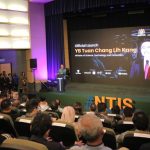By The Malketeer
In 2010, Davinder Kaur, a 20-year-old, was drafted into Malaysia’s National Service Training Programme (PLKN), alongside many of her peers. Uncertainty loomed as she embarked on a three-month camp adventure.
“Coming from a conservative Sikh family, I really did not like the feeling of living away from home,” shared Davinder, now a 33-year-old content writer based in Kuala Lumpur. However, her perspective changed dramatically by the end of the programme, as she found herself in tears upon departure because she couldn’t bear to leave behind the new friends she had made.
While Davinder cherishes her national service memories, recent proposals to revive the programme have garnered mixed reactions, with some viewing it as a boon and others as a bane. Initial concerns arose among older millennials in their early 30s when Defence Minister Mohamad Hasan suggested that potential recruits could be as old as 35. These older millennials worried about disruptions to their lifestyles and questioned their ability to cope with the rigorous exercise regimens.
However, these concerns were eased after the Ministry of Defence clarified that only teenagers would undergo in-camp training, with an option for deferment based on valid reasons, and the maximum age for trainees was set at 35.
The PLKN originally selected its first batch of 85,000 male and female trainees in 2003 through a balloting system. The programme was halted in 2015 due to cost concerns but resumed in 2016 with an emphasis on developing work skills. In 2018, the government abolished the programme, which had incurred a staggering cost of around RM8.4 billion over 14 years.
Despite doubts about the necessity of reviving such a costly programme during the current uncertain economic times, many past participants argue that the experience it offers is invaluable. It allowed young Malaysians to form cross-racial friendships that they might not have developed otherwise.
“There were many participants who had fleetingly interacted with people of other races during their school years. In the PLKN camp, all of us went through physical training, character-building lessons, and cultural exchange components, fostering unity,” said Tay Siew Siang, an art director at a multi-national advertising agency in Petaling Jaya.
Safety concerns have previously been raised, with some reported deaths linked to the programme over the years, along with reports of alleged sexual harassment and food poisoning. However, some, like Junaidah Ismail, a PR Manager who underwent training in 2010, argue that such incidents were isolated.
For Ashwin Nadaraja, a digital marketer who went to a camp in Pahang in 2009, the experience prepared him for adulthood and instilled a strong sense of discipline. Although he appreciated meeting trainees from various backgrounds, he believed that the three-month duration was insufficient for deep friendships to flourish.
The proposed PLKN 3.0 is expected to utilise 13 existing training centres, a departure from previous runs that involved constructing new sites. A working proposal is set to be submitted to the National Security Council (NSC) in 2024. If approved, the training period will be shortened from three months to 45 days, with the aim of drastically reducing the annual budget from RM500 million to around RM100 million.
The revival of PLKN aims to create opportunities for greater national unity, personal growth, and lasting memories among young Malaysians, much like the experiences of Davinder, Tay, Junaidah, and Ashwin, from the marketing and advertising fraternity.
“I must confess that the PLKN programme has in some ways contributed to my career development in the communications profession. It helped me to build resilience in overcoming exacting deadlines,” confided Junaidah.
MARKETING Magazine is not responsible for the content of external sites.











